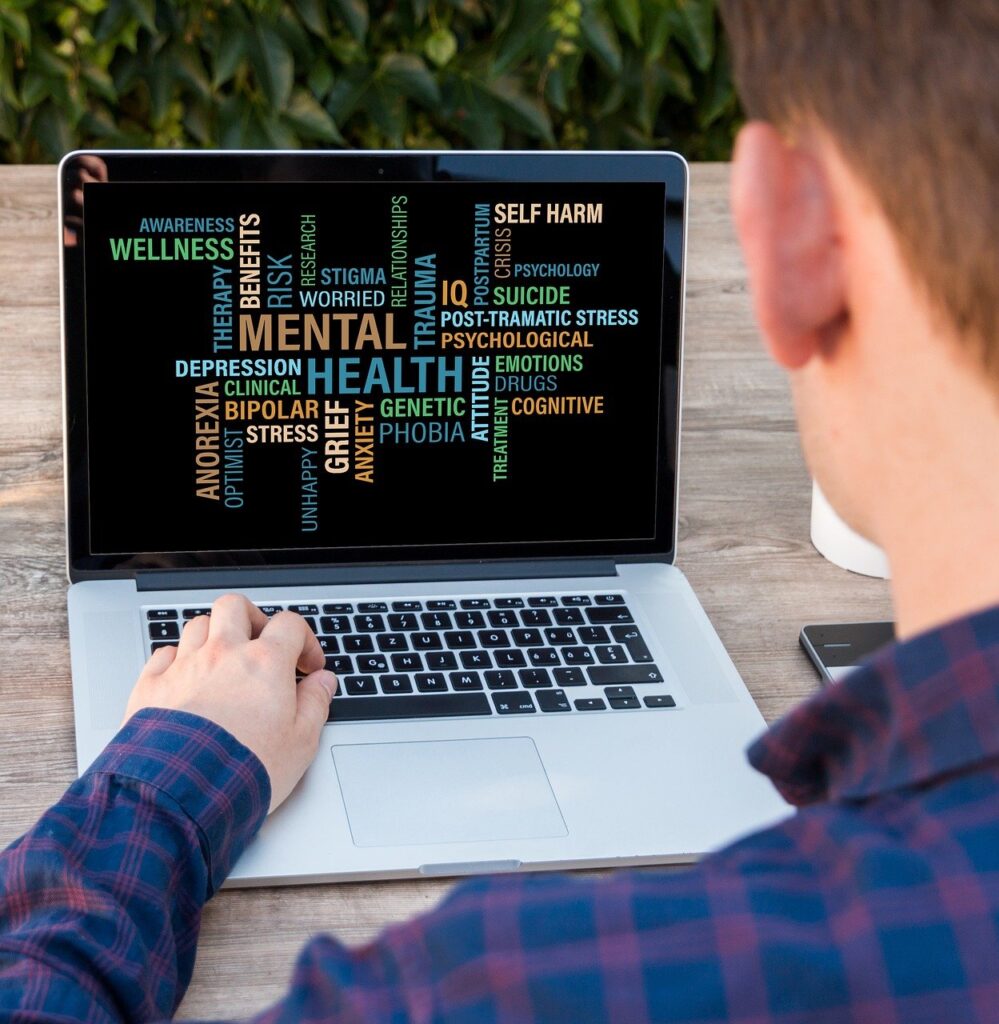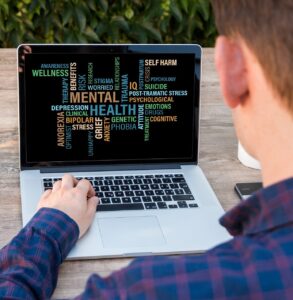“Nearly every teenager in America uses social media, and yet we do not have enough evidence to conclude that it is sufficiently safe for them. Our children have become unknowing participants in a decades-long experiment.”
The words are not mine, but those of the U.S. Surgeon General, in a recently published advisory on teens and social media use. I wish I could write off his words as unnecessarily alarmist but I see the negative effects of excessive screen time all the time.
So, what exactly is the problem with teens and social media use? According to a growing body of research, the more time children and adolescents spend in front of screens, the more susceptible they are to suffer from mental health problems such as aggression, anxiety and depression. Social media is also linked to worse self-esteem among girls and increases the risk of cyber bullying and harassment.
The advisory from the U.S. Surgeon General goes as far as saying that “…while social media may have benefits for some children and adolescents, there are ample indicators that social media can also have a profound risk of harm to the mental health and well-being of children and adolescents.”
The fact that screen time displaces other activities that benefit mental health, like sleep, physical activity, spending time in nature and seeing people face to face, only compounds the problem. According to the American Academy of Pediatrics, children today spend on average seven hours per day on entertainment media, including social media. You don’t need to master college level calculus to figure out that this schedule doesn’t leave time for much else.

Smart phones are everywhere, all the time
Smart phones – and their endless dopamine-inducing social media feeds – are now so ubiquitous that being without one for even 24 hours is unthinkable to a lot of 12-year-olds. (I know, because I tried suggesting that the kids in my daughter’s sixth grade class leave their phones at home for their overnight class trip, so they wouldn’t get distracted by social media or stuck playing games instead of hanging out in real life. They cried child abuse and threatened with mutiny.) Some start showing serious withdrawal symptoms after as little as 15 minutes without their phone and can’t sit through a 30-minute dinner without starting to fidget with one. (Also witnessed during said class trip.) Forget getting them to turn the phone off at bedtime, today’s teens are always on standby and are used to falling asleep to (and being woke up by) an irregular symphony of social media notifications.
According to a Swedish survey, four out of ten teenagers feel like they spend too much time online, and as many as seven in ten parents worry about it. But the parents are tired of screen time battles and feel like they’re losing. “When my Dad thought I watched to much TV, he just pulled the plug on the thing. Today, when every kid has a smart phone in their pocket, it’s just so much harder,” one parent lamented.
At my 15-year-old daughter’s school, the phones even come into the classroom, where they are secretly used for playing games, texting friends and scrolling social media. “The ninth graders are set in their ways; old habits die hard,” one teacher said and shrugged when I questioned why the school didn’t require the phones to be locked up during class. The adults in the room had given in and given up.
Taking collective action
As a parent of a teenager and tween myself, both of whom have smart phones, I know that screen time battles are hard. If there’s one regret I have, it is that I didn’t delay giving my girls smart phones – and access to certain social media apps – longer. Once that Pandora’s box was open, keeping track of appropriate apps, staying on top of parental controls and generally preventing the kids from getting totally consumed by the tiny screen got far more difficult than before. I know there are other parents who feel the same way. While we can’t go back in time, we can do our best to ensure that our teens have a healthier and more balanced relationship with screens in general and social media in particular going forward.
The U.S. Surgeon General recommends creating a family media plan (you can find a great online tool for that here), establishing tech-free zones, making sure all devices are turned off at night, encouraging unstructured and offline connections with others, and modeling the behavior we want to see in our children. Just as important as setting reasonable rules, is to have open conversations with our teens about their experiences online, inappropriate content and behavior, and to be supportive if they have been harassed.
I’m also a great believer in parents banding together. When we take collective action, we help create new norms and cancel out the most common argument that kids use to wear down their parents’ defences, namely “everybody else has a phone/Snapchat/Tiktok” or “nobody else has any screen time restrictions”. We may not agree on everything, but let’s at least decide not leave a walk-over to the screens. If social media is one big experiment, as the U.S. Surgeon General warns, our teenagers are going to need all the support and guidance from the adult world that they can get.


Join me for a hiking adventure in the Swedish highlands!
Welcome to beautiful Härjedalen and Helags Glacier Would you like to join me in Härjedalen, where the air is pure and the water so clean

Embracing the dawn chorus – why you should give the tradition of gökotta a try
Every spring, as nature awakes and the migratory birds return from their winter locales, the old Swedish custom of gökotta holds that you should get

5 tips for a successful winter picnic
If I say ‘picnic’, chances are you come to think of sitting in the grass in a park on a warm, sun-kissed day. But a

How to create a nature habit that sticks
We all know that nature is good for our physical and mental health and well-being – but creating a daily nature habit can be

How do I find a nature preschool near me?
Find outdoor learning opportunities for your child by exploring the most comprehensive directory of nature preschools, forest schools and other nature-based education programs in North America.

We can’t leave a walk over on teens and social media
A new advisory says there’s not enough evidence to conclude that social media is safe for children. It’s time for adults to band together when it comes to teens and social media use.


Thank you for this post. This is such an important issue and I’m glad to see more parents are discussing it critically.
I wonder: who cried child abuse – the kids or the parents? If it was the kids, I wonder why the parents gave in. Had it been something else (alcohol, drugs), they might’ve exercised their right to parent?
It was the children…They were seriously up in arms about it and it made me kind of sad. With the parents, the issue was that some of them insisted on being able to contact their kids at all times. We ended up collecting the phones during some of the activities but since we didn’t have the support of all the parents, we had to return them. So the dependence on the phones came from both ends but for different reasons. Personally, I would’ve seen it as a wonderful opportunity for my child to be unplugged and gain independence, but not everybody shares my view…
Our scout troop normally collects phones on weekend campouts as well as summer camp. Their parents can text the leaders — we do let them know we have arrived and that no news is good news. The kids are always happier without their phones, at least once they’re convinced we mean it. My scout is big now, he works at summer camp. He is now required to carry his phone as part of emergency and first aid preparedness. Big kids should definitely know wilderness first aid. He doesn’t use social media, which makes him more of an outlier than when he was a toddler on the playground in his rainsuit.
That’s what we’ve done during Scout camps too and I think it’s a good thing. When children are too dependent on their phones, they become helpless without them. I also think it’s good for the parents to practice giving their kids some space and a chance to gain independence, and camp is a very safe place to do that.
Every time my oldest disconnects from his cell phone, we deal with anger, aggression, and depressive moods. In order to combat this, screen time has become very limited in my home, and expectations for usage are stricter, including use in common areas, plug-in in Mom’s room at night, and regularly scheduled no-device days. I have also become more aware of my own usage and limit that as well to set a good example for my children. When I speak to moms with children younger than mine, I encourage them to wait on purchasing personal devices and phones, and I strongly suggest parental controls for things like downloading apps from the app store. My child also understands that I may go through the phone at any time and if expectations are not met, the phone is put away again. The online tech tool is great. Thanks for sharing! See you outside!
These are very common reactions when limiting children’s tech time and I know a lot of parents are going through the same thing. Navigating this brave new tech world can be hard but I think having some restrictions in place helps. If I were to do it over again, I would’ve delayed the introduction of smart phones too!